In relation to Indian cinema, motherhood or the phrase ‘maa’ throws up an image of a (largely) hapless lady – self-sacrificing with hardly a voice of her personal.This portrayal of the mom as an image of selflessness, and endurance grew to become a staple in Indian cinema with a number of exceptions, like Mom India. On this 1957 traditional, directed by Mehboob Khan, Radha, (Nargis) places her village and a woman’s honour above the love for her sons, a revolutionary step in these instances. Nonetheless, such films have been unfold far and large, and for probably the most half, the mom was proven as largely a ‘sufferer’.
#GoldenFrames: Nirupa Roy – Most adored mom of Indian cinema
Yash Chopra’s ‘Deewar’ with the gifted Nirupa Roy, noticed her within the position of a single mom, battling the challenges of life, and for the subsequent few years, each the actress, and the character grew to become the norm, with little to no deviation. Shedding gentle on that period, actress Tisca Chopra, who performed a mom in Taare Zameen Pe stated, “We have been as soon as, courageous sufficient to make a Mom India. However then the mom character descended right into a mere foil for the hero, a writing trope.”
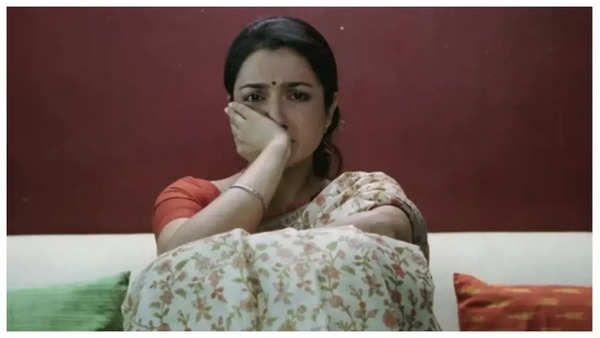
A glimmer of hope within the 80s and 90s
This two eras introduced a gradual shift within the portrayal of conventional motherhood roles. Films like Arth (1982) and Mandi (1983), started to problem stereotypes, together with moms, who weren’t confined to conventional roles.
One other ‘peak motherhood’ monitor makers mastered as a method for achievement, was the revenge drama with the mom as the point of interest. Vis-à-vis this theme, actress Rakhee grew to become the frequent thread by way of her ‘wronged’ avatars in films like Baazigar (1993), Karan Arjun (1995) and Soldier, (1998) when the prodigal son rose to hunt revenge, albeit usually with doubtful means.
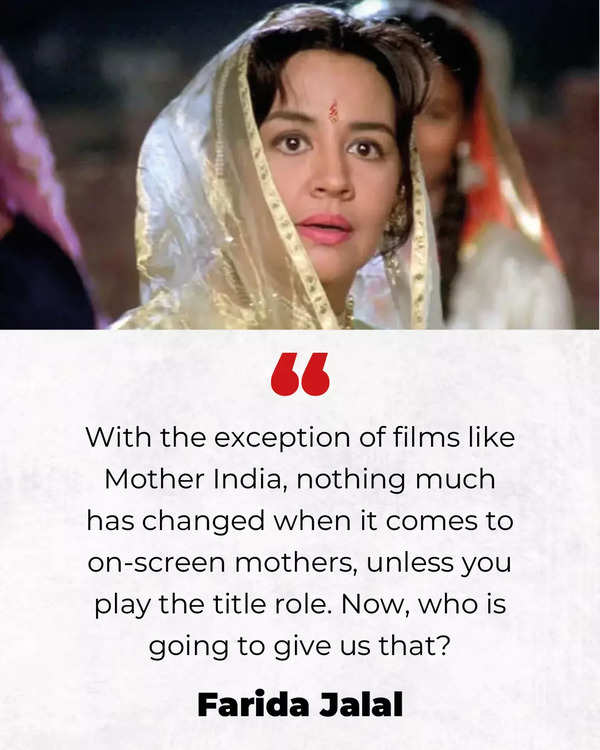
Extra examples got here within the garb of ‘mother is good friend’ position, the prime examples being Reema Lagoo in Maine Pyar Kiya (1989), and Farida Jalal in Dilwale Dulhania Le Jayenge (1995). These ladies, although nonetheless largely dwelling below the shadow of their strong patriarchal husbands, inspired their kids to have a voice of their very own, and battle for his or her love, with their approval (from the sidelines).
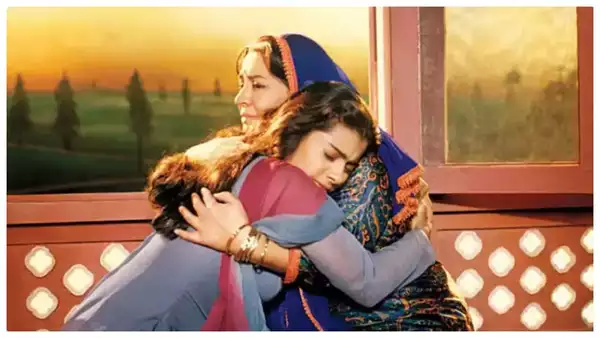
The ushering of a brand new period
The fashionable twenty first century introduced in a brand new wave of moms, who weren’t afraid to voice their issues, and have a lifetime of their very own. In Meghna Gulzar’s emotional and mature story Filhaal (2002), Sushmita Sen performs a surrogate to finest good friend Tabu, when she is unable to hold a baby. Sen’s character breaks away from conventional roles, highlighting themes of selection and private sacrifice. Years later, Mimi (2021) too, tackles the topic of surrogacy in a light-weight hearted method, as a small city bold woman agrees to be a surrogate to a international couple, however is left within the lurch, simply earlier than she is because of ship. In between, films like Tumhari Sulu (2017), and Tribhanga (2021) have been a welcome change. Within the former, we now have the ever so reliable Vidya Balan (Sulu) having profession ambitions, regardless of a correct lack of schooling, and goes out of her technique to fulfil them, whereas being the devoted spouse and mom.
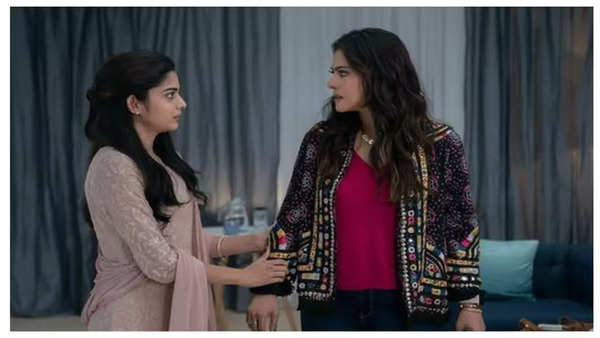
In Tribhanga, we see two (or somewhat three generations of mothers) selecting to navigate life their very own means, with every of them being proper on their very own accord. Whereas Nayantara Apte (Tanvi Azmi) is a celebrated writer, she misses out on her children’ childhood, due to which Anuradha (Kajol), harbors deep resentment in the direction of her. Anu on her half, is a single, profession oriented mother, who lives life on her personal phrases. Her married daughter Masha (Mithila Palkar), in a whole flip round from her mom and grandmother, has no profession ambitions, is married into a conventional household, and is proud of that association. Initially dismissive of her personal daughter’s ‘regressive’ outlook on life, Anuradha ultimately involves phrases with it, realising that every one human beings make errors and one ought to be free to reside life their very own means. Different notable mentions on this period have been Devdas (2002), Kal Ho Na Ho (2003) and Jaane Tu… Ya Jaane Na (2008), with highly effective moms.
Farah Khan’s Transferring Tribute To Her Mom Menaka: ‘We Take Our Moms For Granted’
The rise of ‘Tiger’ mothers
In the previous few years, there was an awesome rise of ‘Tiger’ mothers, who go over and above the standard bindings of patriarchy to set issues proper for his or her youngster. The 2 most stark examples are Mother (2017) and Mrs. Chatterjee vs Norway (2023). In each these films, the 2 in any other case, erstwhile demure ladies unleash their tiger avatars when their youngster was wronged and set issues proper, at the same time as their husbands are both too clueless to what was occurring, or couldn’t be much less bothered. As Nawazuddin Siddiqui, when reminded that bhagwaan har jagah nahi hota (God cannot be all over the place) replies, ‘pata hai, isliye toh usne maa banayi’ (that’s the reason he created moms) (Mother). English Vinglish (2012), although not largely centred on motherhood, too, is a few lady discovering a voice, satirically, in a international land, the place she struggles to talk English. In all these films, the point of interest stays the identical – a mom chooses to shed her conventional avatar when adversity strikes.
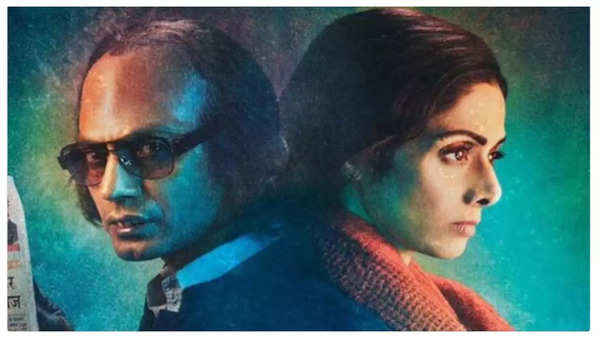
What has modified through the years?
Farida Jalal, who has performed the enduring mom in lots of films, believes nothing a lot has modified with regards to on-screen mothers. She stated, “Except movies like Mom India, nothing a lot has modified with regards to on-screen moms, until you play the title position. Now, who’s going to offer us that?” Nonetheless, Tisca Chopra is barely extra upbeat, when she says, “Taare Zameen Par gave mums a brand new highlight, although I might have given Maya Awasthi extra company. She may have stood up in opposition to the dad and stopped Ishaan from going to boarding college, however then there could be no story. At this time mothers are rockers; see Neena ma’am in ‘Badhai Ho’ , Sushmita Sen in ‘Aarya’ and even the character I performed, Avni Raut, in ‘Dahan’ – they’re compelling ladies and never simply because they’re moms.”
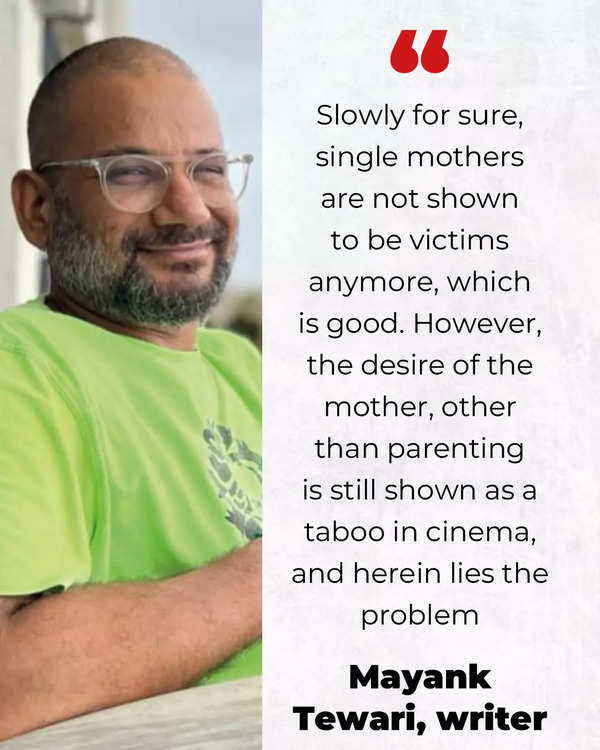
What does the longer term maintain?
The rise of feminine administrators and writers has performed an important position on this transformation. Filmmakers like Zoya Akhtar, Mira Nair, and Gauri Shinde have introduced recent views to the maternal narrative, contributing to a richer and extra nuanced portrayal of moms in cinema. Nonetheless, we now have an extended technique to go. Tisca provides, “Actually, extra depth is required in writing feminine characters. The minute a girl is written as having a baby, she turns into ‘Devi Maa’ and having different dimensions like sensuality, intrigue or sauciness is unthinkable. As extra ladies write, that is positive to vary. Victimhood, disgrace and guilt have been strongly woven into the Indian feminine ethos, which fairly frankly suffocating to play. I’ve labored very onerous to not play or write such characters, be they moms or not, as a result of I discover them unidimensional and never serving to in creating a brand new narrative.” Her sentiment is echoed by author Mayank Tewari, as he says, “Slowly for positive, single moms will not be proven to be victims anymore, which is sweet. Nonetheless, the need of the mom, aside from parenting, continues to be proven as a taboo in cinema, and herein lies the issue. “
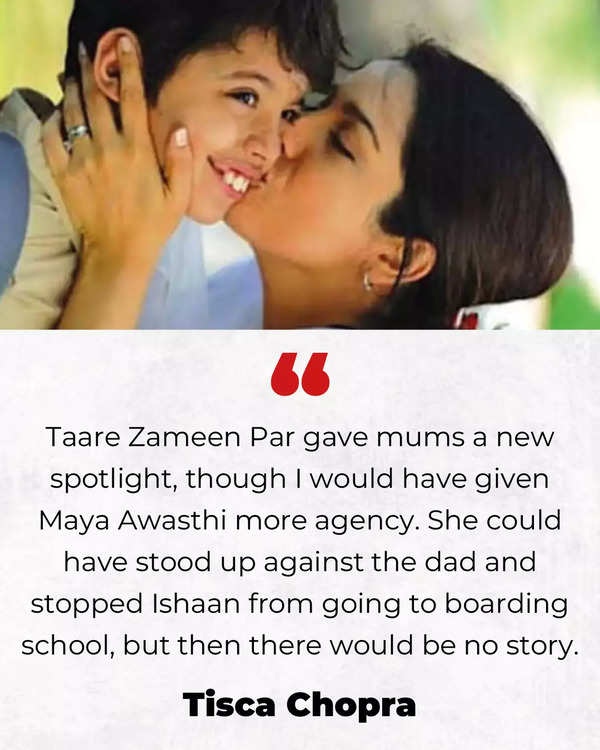
Ila Bedi Dutta, author, shares a hopeful parting word. She says, “Positively, earlier the moms have been passive and lacked company, as a result of in our movies we seen moms from a patriarchal lens. However, with the appearance of OTT the onscreen moms are evolving , breaking away from the shackles of patriarchy and discovering their “ voice”. They’re now not ciphers- they’ve entity and company.”



